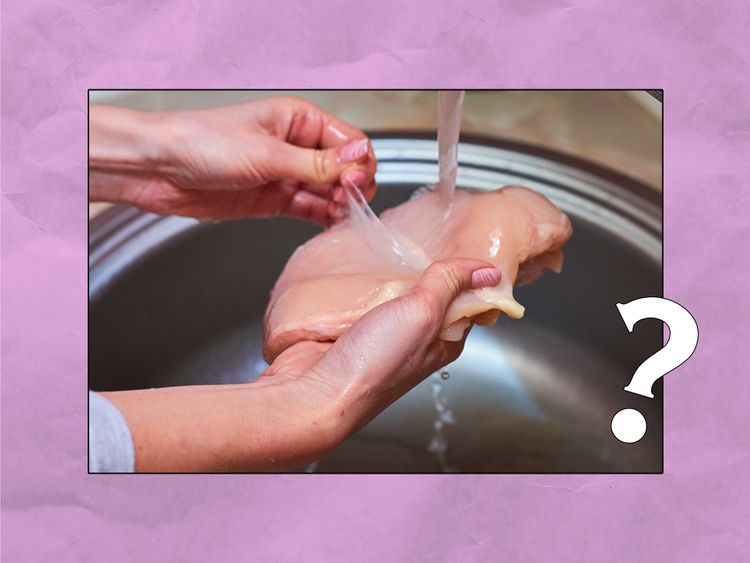Should you wash raw chicken? It’s a question that’s hung around for a while. There is a clear answer though, and it’s important to know it.
Not only is chicken on our list of riskiest foods, but preparing chicken around other ingredients runs the risk of contaminating them. It’s obvious that chicken should be prepared with a little care. Most people are aware of this. But some myths still persist in the kitchen, and washing your chicken is a big one.
Like many cooking techniques, lots of people who still wash chicken saw their grandma or dad do so. Or they saw, in the first step of their dinner recipe, a direction to wash their chicken. My family washed chicken for as long as I can remember. But this step might be doing more harm than good.
What do the Experts Say
The experts all agree: You should not wash your chicken.
“The absolute safety of food can never be assured, and the mass production and wide distribution of it makes undercooking any food (even vegetables) somewhat risky,” says Mark Bittman in How To Cook Everything. “But chicken is a special case, because more than ten percent of many samples of birds contain salmonella. Salmonella is completely killed, however, by cooking chicken until it is fully done.”
There is no need to wash chicken because anything that is unsafe about the chicken when raw will be cooked out when poultry reaches an internal temperature of 165 degrees F (73 degrees C). And given what we know about how bacteria spreads, it’s best to keep your chicken away from your sink.
“Raw chicken is ready to cook. It doesn’t need to be washed first,” says the Centers for Disease Control and Prevention. “Salmonella causes more foodborne illnesses than any other bacteria. Chicken is a major source of these illnesses. In fact, about 1 in every 25 packages of chicken at the grocery store are contaminated with Salmonella.”
Why You Shouldn’t Wash Raw Chicken
Simply put, it spreads bacteria. According to the U.S. Department of Agriculture, “even when consumers think they are effectively cleaning after washing poultry, this study shows that bacteria can easily spread to other surfaces and foods. The best practice is not to wash poultry.”
Other ingredients you are cooking with can become contaminated. We all know the importance of washing our hands, especially after handling raw chicken. But this is a common way bacteria spreads. Washing chicken can splash onto your arms or apron, and they can linger on our hands and spread to other foods, even if we wash our hands well.
a plateful of raw chicken thighs seasoned with salt and pepper
continued on next page
